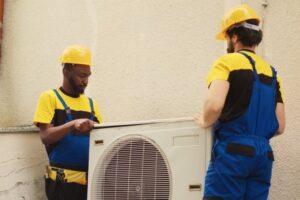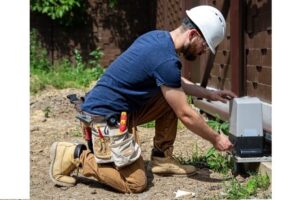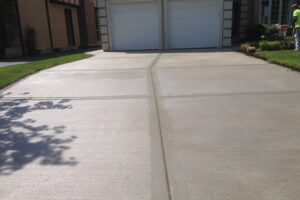Suppose you are the property owner and you are seriously thinking about a solar panel array for your premises. In that case, you are one of the many who are considering investing in such a system. Solar energy is one of the most popular renewable energy sources today, and solar panel systems are a definitive investment, built and designed to last. And the fact that solar panel systems are now more affordable makes them even more popular with numerous home and property owners in the UK. But whilst it may be one of your most significant (and most feasible) decisions, it doesn’t mean to say that you can choose the first solar installer you come across.
When considering solar panel installation, it’s crucial to evaluate the experience and reputation of the installer. Ask about their previous projects and request references to ensure quality service. Additionally, inquire about the types of solar panels they offer and their efficiency ratings. For those in the Yuba City area, North Valley Solar Power is a reputable option known for its expertise and commitment to customer satisfaction. Understanding the warranty and maintenance services provided can also help in making an informed decision. By thoroughly vetting your prospective installer, you can ensure a smooth transition to solar energy and long-term benefits for your home.

Table of Contents
1. Will you assess my roof and provide a structural report?
Your roof will need to be evaluated and assessed to see if it is strong enough for an array, and you can request a structural report from an ISE engineer that is tailored precisely for your roof. There are general structural reports, but you need a specific one that assesses various factors like the size of your roof’s rafters, the wind zones, and the spacing, which could all influence your roof’s suitability.
Once you have acquired a structural report, your solar installer can determine if your roof requires strengthening. Alternatively, they can recommend an in-roof solar panel system wherein a portion of the slates or tiles will be replaced by the solar panels themselves. Thus, they will form a solar panel roof with no need for tiles or slates underneath.
2. Will you conduct an analysis on the shading?
Your solar panel installer may also need to conduct an analysis of the roof’s shading, as shading isn’t ideal for solar panel installations at all. The installer could recommend ways to mitigate the impact of shading. They need to analyse this because shading can be caused by various objects surrounding the roof, such as trees and nearby buildings, and other structures. If the shading of your roof is a potential issue, your installer may be able to present you with an analysis generated by a computer. Shading will impact the energy output, and you need to know the amount of energy the system can generate to make it worthwhile.
3. What are your warranties?
It is also essential to find out the terms of the installer’s warranties. Warranties can vary from one installer to the next, but the standard warranty for panels is 20 to 25 years. Your installer should also offer a workmanship warranty, which can extend from five to up to 10 years. Another warranty they should provide is for the inverter, extending from five to 10 years. Additionally, you may be able to ask for an extension on the warranties for an extra fee.
Conclussion
When considering solar panel installation, it’s crucial to ask about the installer’s experience and the types of panels they recommend. Understanding the warranty and maintenance services offered can also provide peace of mind. Additionally, inquire about the expected energy savings and any available financing options. For those ready to take the plunge, it’s a great time to get started with renewable energy. This step not only contributes to a sustainable future but also offers long-term financial benefits. By choosing a reliable installer, you ensure a smooth transition to solar power, maximizing both efficiency and savings.




